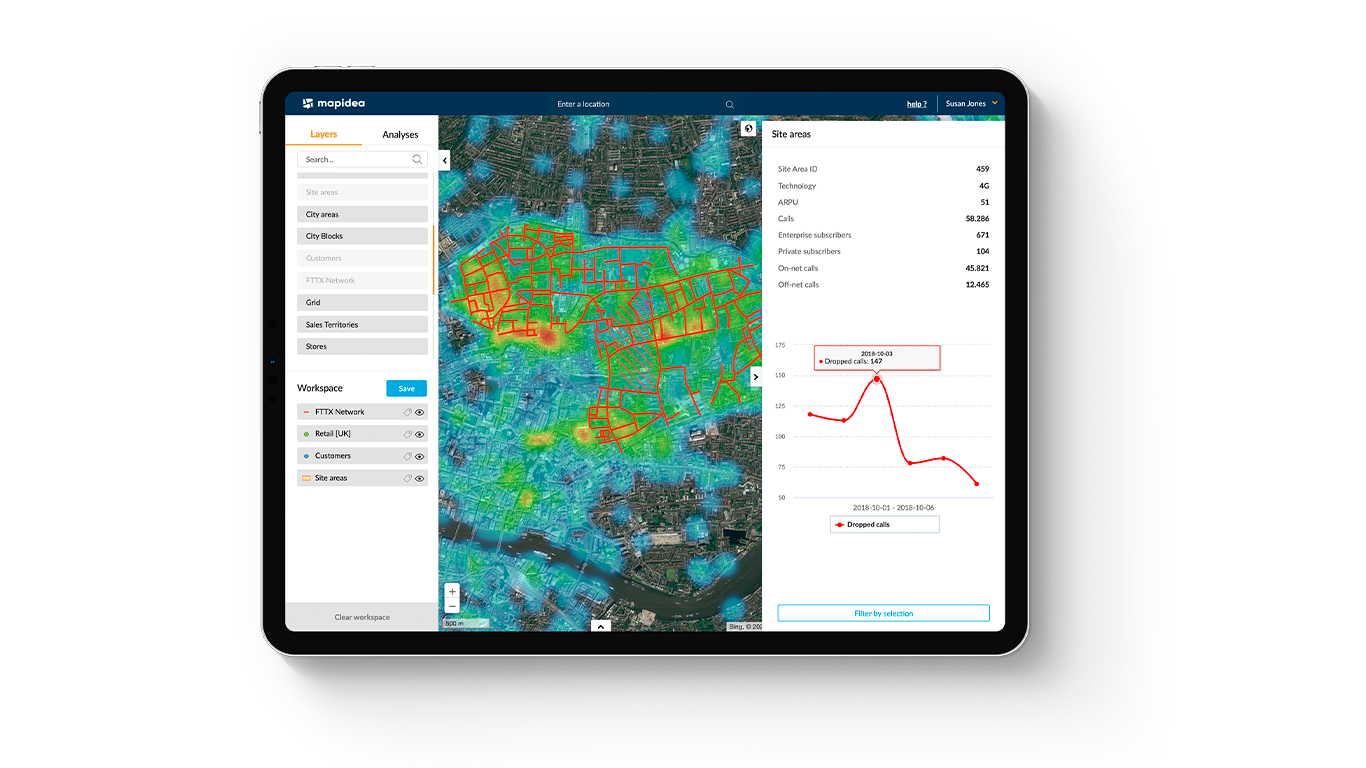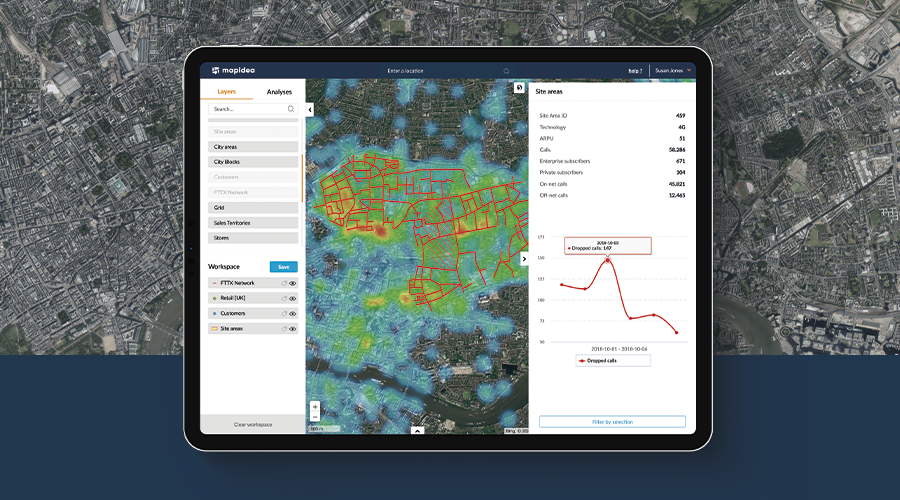Data Analytics: the time is now!
The business world has long realized the power of data, and, in the last decade, has been investing intensively in resources, both human and technological, to allow transforming data into valuable information, capable of supporting better business decisions.
In just a few years, several new professions have emerged, such as data analyst, data scientist, data engineer, and data architect, among other fancy names that shine on LinkedIn, as well as new user friendly data analytics and intelligence software like Mapidea, with a focus on the great mission: to collect and integrate as much data as possible, to analyze it, and to transform it in information capable of powering decision and management processes, the well famous insights.
Telco companies around the world have been aggregating and selling mobility data, enabling to know how many people on average pass through a given area in the different time periods, information that is very useful for companies in the process of selecting the best area to open or expand a business (aggregated and anonymized data, your privacy is not at risk) The same example also applies to companies that provide financial services (such as credit cards), already able to collect and sell transactional data, very relevant to several different companies. There is still a long way to go, and it appears likely that the democratization of machine learning processes will contribute to an even faster development of this whole data ecosystem.
In the world of institutions, and governments, we see more and more countries defining the use of data for the common good as a strategic, priority objective. In some cases, this goes further back, as in the United States, that created the data.gov portal in 2009. In 2010, Colorado was the first state, and New York the first city to appoint a Chief Data Officer, and in 2013, all federal agencies were required to publish open data. A national Chief Data Scientist was appointed in 2015. Denmark has recently set out a national strategy to address the advances in artificial intelligence, reflecting its government's vision that "Denmark should be a frontrunner in the responsible development and use of artificial intelligence". A closer example, France, implemented in 2019 an experimental program on the use of artificial intelligence in public administration, stressing that "the French state must embrace the potential of artificial intelligence by integrating it into the delivery of its missions, to provide a better service to its citizens.
In Portugal, the Lisbon City Council created the position of Chief Data Officer in 2016, and the open data portal of the Portuguese Public Administration, Dados.Gov, was launched in 2018, bringing together all the information provided by ministries, municipalities, and other public bodies. These are positive signals, but I think it falls short. Now It´s time to set out a vision, a nationwide strategy, not depending on elections, to ensure that data is effectively used to support better and more transparent decisions for the running of the country and to provide better services to its citizens. A data-driven culture cannot be created by bureaucratic fiat, there is a need for resources, human and technological.
As I write this article, the UK has just reported that the British NHS missed about 16,000 COVID-19 cases due to an Excel error. Public Health England officials used an older Excel file format (XLS instead of XLSX) that was not able to handle as many rows of data as necessary. It feels like something out of candid camera show, but unfortunately, there are no hidden cameras, just some embarrassment to look at.
We're hoping that 'now with data analysis' will quickly become the buzzword of our times.



